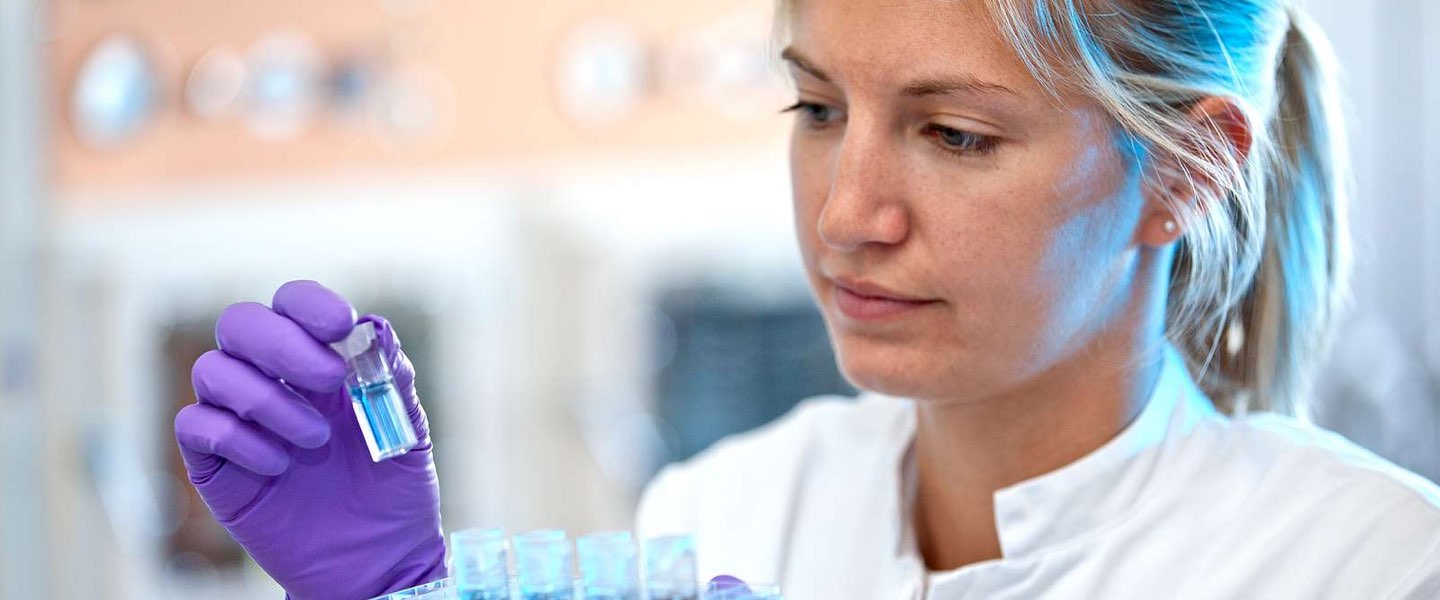Research at the Institute of Transfusion Medicine and Transplant Engineering
All research at the Institute of Transfusion Medicine and Transplant Engineering is designated to biotechnology approaches in organ and stem cell transplantation to combat rejection and infection. The priority programs are determined to optimizing allogeneic and xenogeneic biomaterials to perfectly match the patient’s cell replacement needs and are part of powerful research networks at both the national and international level.
Among the allograft engineering developments, Invisible Organs created by transplant engineering are addressing the burden of rejection and the acute shortage of organs whereas alloCELL created from selected T-cells are addressing the burden of infection in patients often having no alternative therapeutic option available.
Research Areas
Clinical Trials
This area of research focuses on the genetic engineering of cells, tissues and entire organs (Invisible Organs©) towards decreasing their immunogenicity to improve graft survival after allogeneic or xenogeneic transplantation. Advanced gene regulatory and gene editing approaches, ex situ perfusion as well as tissue and organ engineering strategies are combined to generate immunologically invisible transplants that escape allogeneic or xenogeneic humoral and cellular immune responses even in the absence of immunosuppression.
Contact:
Prof. Dr. Constanca Figueiredo
T +49 511 532 9711
F +49 511 532 9701
Figueiredo.Constanca@mh-hannover.de
This area of research focuses on the principal mechanisms of inflammation in various clinical and experimental transplant settings. Understanding the molecular, cellular and immunological mechanisms in graft inflammation will help to develop novel anti-inflammatory therapies. A particular focus is the complex regulatory role of the key compound heme in inflammatory conditions of ischemia-reperfusion injury and transplant rejection.
Contact:
Prof. Dr. Stephan Immenschuh
T +49 511 532 6704
F +49 511 532 2079
Immenschuh.Stephan@mh-hannover.de
This area of research focuses on the development of personalized antigen-specific T cell immunotherapies. A long standing expertise with the analysis, preparation, and usage of antiviral T cells has enabled protocols to identify patients at enhanced risk for viral infections as well as patients with viral infections that could not be controlled by conventional therapy. The manufacturing license for the GMP-compliant generation of antiviral mono- and multi-virus-specific T cell products for adoptive T cell transfer therapy strongly supports the treatment in immunocompromised patients with viral complications including EBV-associated malignancies.
In addition, this research is focused on the development of CAR-engineered T cells to control malignancies such as EBV-associated tumors and is aiming at the development of optimized CAR-strategies for clinical applications.
Contact:
Prof. Dr. Britta Eiz-Vesper
T +49 511 532 9715
F +49 511 532 9701
Eiz-Vesper.Britta@mh-hannover.de
This area of research focuses on the development of cell therapeutics for cellular replacement and regenerative therapies made from induced and optimized pluripotent stem cells for transfusion and transplantation purposes, including bioartificial organs. The engineering approach includes strategies for tolerance induction to increase efficiency and compatibility (Invisible Cells©).
Contact:
Prof. Dr. Constanca Figueiredo
T +49 511 532 9711
F +49 511 532 9701
Figueiredo.Constanca@mh-hannover.de
This area of research focuses on antigen recruitment and presentation through MHC class Ia and class Ib molecules during pathogenic episodes or drug treatment. Understanding the function and atomic structure of distinct Peptide-MHC complexes driving desired and undesired immune responses will contribute to personalized approaches in cancerous, infected or drug-modified cells.
Contact:
Dr. Christine Bade-Döding
T +49 511 532 9744
F +49 511 532 9701
Bade-Doeding.Christina@mh-hannover.de
